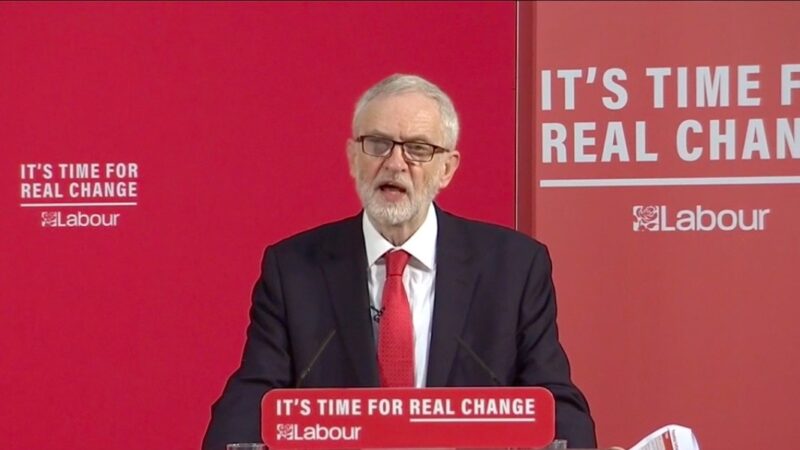
Labour complained to the BBC about its “slanted and biased” coverage of the general election yesterday. In a letter to the Director General, campaign chief Andrew Gwynne accused the organisation of a “worrying failure” to meet its obligations around “fairness and impartiality” in terms of “framing, content and balance”. The frontbencher particularly raised concerns about the Andrew Neil series of interviews, which has seen all key party leaders grilled apart from Boris Johnson. You don’t have to be anti-Tory to see that the Prime Minister refusing to agree a date for his own interview is appalling. You also don’t have to be a regular BBC basher to agree that their decision to air episodes before securing the Johnson version will have damaging consequences, both in this election and in the long term.
Shortly after Labour released news of its complaint to the BBC, Andrew Neil concluded what looks to be his final instalment in the leaders’ interview series with a message. Noting that critics and allies have described the Prime Minister as “untrustworthy”, Neil issued a strong statement about Johnson’s refusal to take part. Labour insiders – and activists, I’m sure – hope that this clip will be shared widely and repeatedly broadcast by the BBC, reaching the broadest audience possible.
Boris Johnson won’t be doing the Andrew Neil interview, as a Tory source has basically now confirmed, but he will take part in the head-to-head BBC debate this evening. This is an opportunity for Jeremy Corbyn to emphasise Labour’s key messages in the last week of the campaign. Crucially, the leader will want to push the line that has been promoted by the Labour battle bus in Leave-voting areas of the country this week: “this is not a Brexit election”. By this, the party does not mean that clarity on Brexit is not important, nor that the subject cannot be discussed. It means that the broader context in which the Brexit vote happened, and in which the debate continues, must be considered. For more on that messaging, read Lara McNeill’s piece about her three-day stretch on the bus.
Corbyn has also just given a press conference in which he revealed another leaked document relating to Johnson’s Brexit deal. This is where more of that all-important Brexit context comes in. The Labour leader has unveiled Treasury analysis of the new Northern Ireland protocol, which I am certain he will be keen to focus on during the debate tonight. The details of the revelations probably aren’t electorally significant in themselves – unfortunately, the last few years of debate have shown that concerns over the impact of Brexit on Northern Ireland are not prioritised by voters in the rest of the UK. And we already know much of what has been disclosed: under the new deal, Northern Ireland could be a “back door into the GB market for the avoidance of import duties” and the arrangement would be “highly disruptive to the NI economy”.
Instead, the key to this latest announcement is that it feeds into doubts over Johnson’s trustworthiness – as Andrew Neil also touched on last night. The report confirms, Corbyn says, that there will be customs declarations and security checks between Northern Ireland and Great Britain. Johnson has repeatedly denied that this would the case, although ministers have admitted otherwise. As Corbyn said this morning, and is likely to repeat tonight: “Ask yourself: if they hid this report what else are they hiding? How will they sell you out?”
Sienna @siennamarla
- Jeremy Corbyn press conference (9.30am)
- Rebecca Long-Bailey launches small business manifesto in Bolton (9.30am)
- Online training for board running by Labour (8-9pm)
- Head-to-head election debate on BBC One (8.30pm)
- Jeremy Corbyn in Swansea (Saturday)
- Digital tool: nhscuts.org.uk
- Campaigning resource: Momentum’s cheap tickets for polling day coaches




More from LabourList
‘The hope that kills you’: Reflections from the final day in Gorton and Denton
MPs, union leaders and organisations react to ‘bruising’ Gorton and Denton result
A gory night for Labour